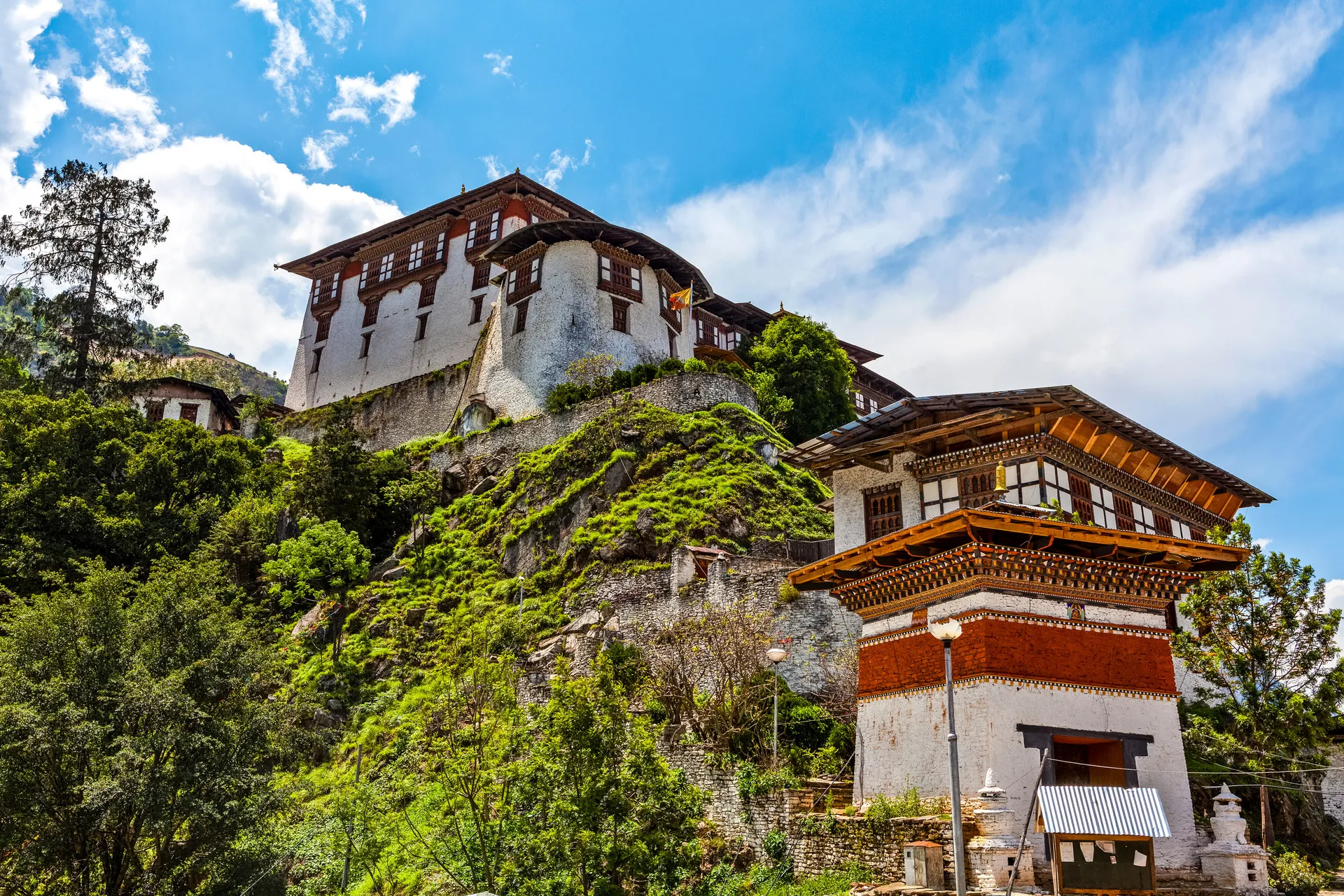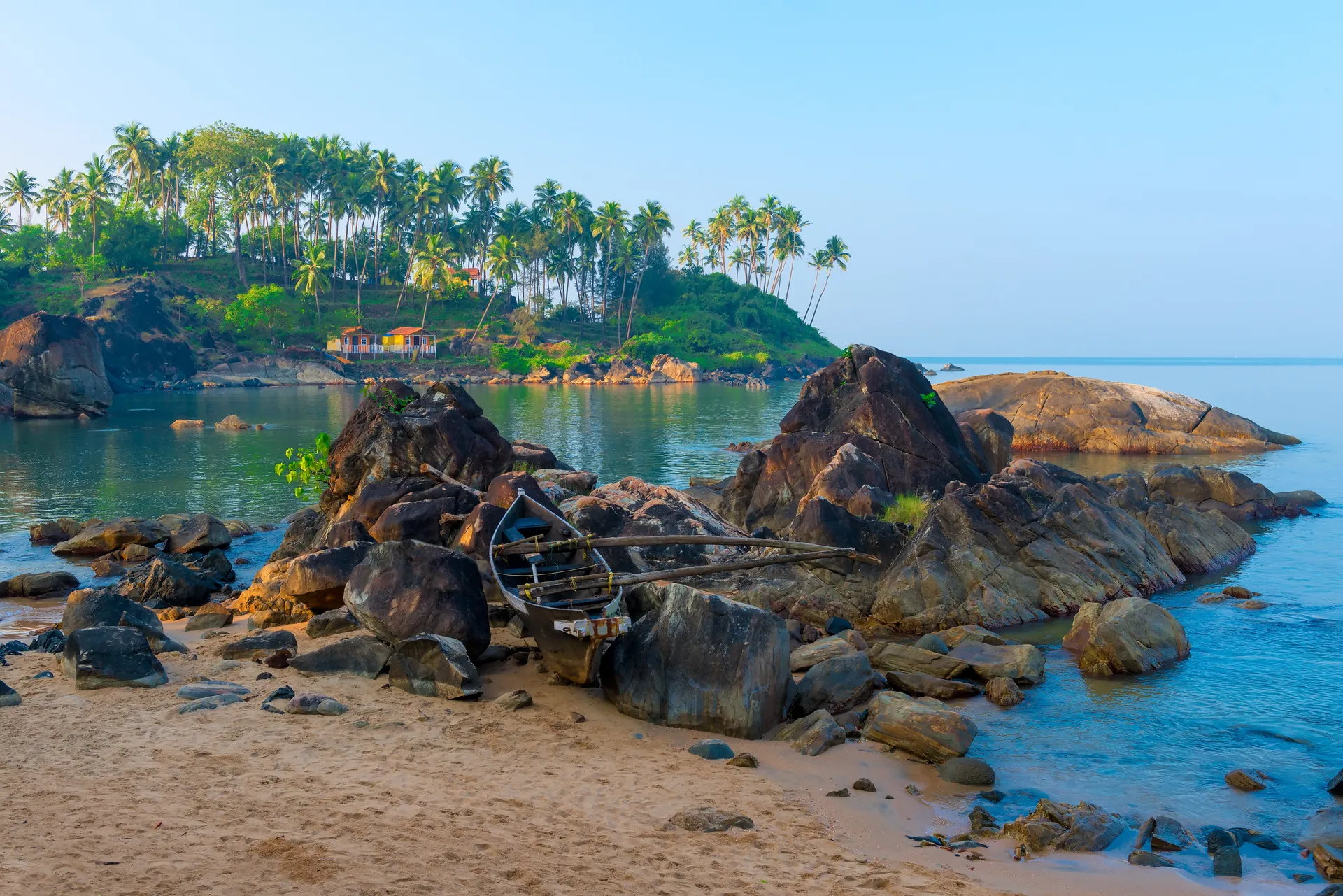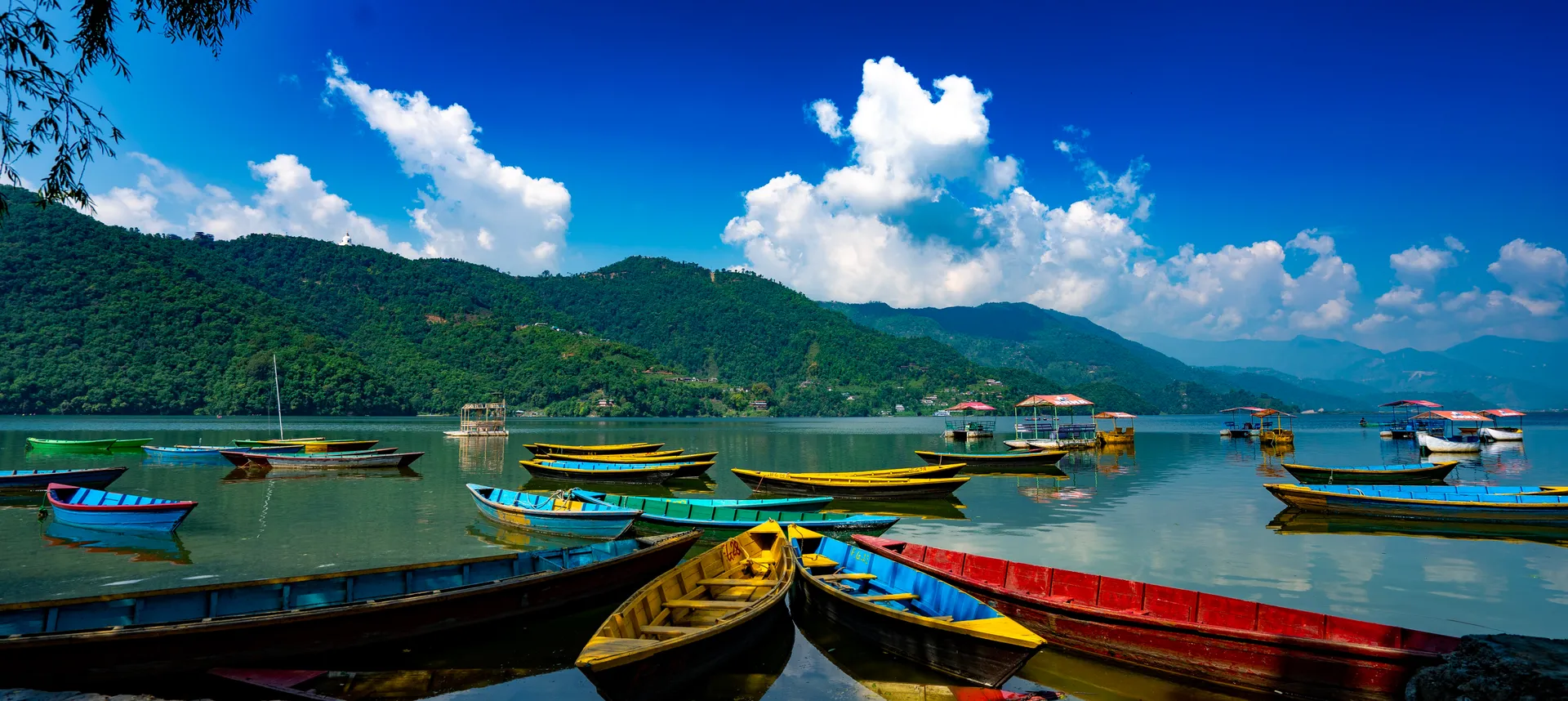
Bhutan Escorted Tours
Bhutan, nestled in the majestic Himalayas, offers travellers a glimpse into a realm of ancient traditions, stunning landscapes, and spiritual tranquillity. From the colourful prayer flags fluttering in the mountain breeze to the imposing dzongs (fortresses) that stand as guardians of Bhutanese culture. Visitors are drawn to the serene monasteries perched on rocky cliffsides, the verdant valleys dotted with terraced fields, and the snow-capped peaks that reach towards the heavens. Embark on a journey and wonder in this extraordinary kingdom on a tour through Bhutan.
Best places to visit in East Asia
Thimphu
Tashichho Dzong: Explore the impressive Tashichho Dzong, a fortress and monastery that serves as the seat of the government and the central monastic body.
National Memorial Chorten: Discover the National Memorial Chorten, a prominent landmark and place of worship in Thimphu.
Paro Paro Taktsang (Tiger's Nest): The trek to Tiger's Nest is challenging but rewarding, offering stunning views and a profound spiritual experience. The monastery complex includes several temples and meditation caves, making it a place of pilgrimage and reflection. Perched on a sheer rock face 900 metres above the Paro Valley, Tiger's Nest is a sacred site dedicated to Guru Rinpoche, who is said to have meditated here in the 8th century.
Punakha
Punakha Dzong: Discover the majestic Punakha Dzong, located at the confluence of the Pho Chhu and Mo Chhu rivers. It is known for its stunning architecture and beautiful surroundings.
Chimi Lhakhang: Visit Chimi Lhakhang, also known as the Temple of Fertility, which is dedicated to Lama Drukpa Kunley.
Best Time to Visit Bhutan
Spring (March to May): Spring is one of the best times to visit Bhutan, with mild temperatures ranging from 10°C to 25°C. The season is perfect for trekking and exploring outdoor attractions, with blooming rhododendrons adding to the beauty.
Summer (June to August): Summer can be warm and humid, with temperatures between 15°C and 30°C. It's a great time to visit the higher altitudes and enjoy the lush green landscapes. However, be prepared for occasional monsoon rains.
Autumn (September to November): Autumn is considered the best season to visit Bhutan, with pleasant temperatures ranging from 10°C to 25°C. The clear skies and beautiful fall foliage make it ideal for sightseeing and trekking. The Thimphu Tshechu festival in September is a cultural highlight.
Winter (December to February): Winter can be cold, especially in the higher altitudes, with temperatures often dropping below freezing. However, it's an excellent time to visit the lower valleys, where the weather is milder.

Your tour of Bhutan is just a phone call away
Call our Travel Specialists today on 1800 804 006
Where possible we have secured a limited number of places without a single Supplement on each escorted tour. These are strictly subject to availability and once they are all booked a supplement will apply.
All of our English speaking local guides are passionate about their country and will accompany you from the moment you arrive in your destination, throughout your escorted tour and right until your departing flight home.
All the hotels chosen for these escorted tours have been personally sourced and inspected by us. We pride ourselves on offering you comfortable, handpicked accommodation in some of the best locations around the world.
Once you have booked, we will send you a comprehensive dossier with all your accommodation details, flight and airport information, country advice and other useful tips such as what to pack and luggage allowance.
PLAN YOUR TRIP
Your guide to visiting Bhutan
Popular Destinations in Bhutan
Bhutan, the Land of the Thunder Dragon, is a Himalayan kingdom known for its stunning landscapes, spiritual heritage, and commitment to Gross National Happiness. Its top destinations offer a serene blend of nature, culture, and tradition:
Thimphu
Bhutan’s capital is a unique mix of modern development and traditional culture. Visit the majestic Tashichho Dzong, explore local markets, and learn about Bhutanese art and history at museums and craft schools.
Paro
Home to Bhutan’s only international airport, Paro is surrounded by lush valleys and ancient temples. Hike to the iconic Tiger’s Nest Monastery (Taktsang), perched dramatically on a cliffside, and explore the historic Paro Dzong.
Punakha
Once the capital of Bhutan, Punakha is known for its stunning riverside dzong and fertile valley. Visit Punakha Dzong, one of the country’s most beautiful fortresses, and walk across the longest suspension bridge in Bhutan.
Best Time to Visit Bhutan
Bhutan’s climate varies by altitude, but the best times to visit are spring (March–May) and autumn (September–November), when the weather is mild and the skies are clear—perfect for trekking, sightseeing, and attending vibrant festivals.
Spring (March – May)
A beautiful season with blooming rhododendrons and pleasant temperatures. Ideal for hiking, visiting temples, and enjoying the Paro Tsechu, one of Bhutan’s most famous religious festivals.
Summer (June – August)
The monsoon season brings lush greenery but also frequent rain, especially in southern regions. It’s a great time to visit higher altitudes, though trekking trails may be muddy due to occasional monsoon rains.
Autumn (September – November)
One of the best times to visit Bhutan. Clear skies, crisp air, and colourful landscapes make it perfect for trekking, exploring the outdoors and photography.
Winter (December – February)
Cold but dry, especially in central and western Bhutan. It's an excellent time to visit the lower valleys, where the weather is milder for cultural sightseeing in places like Thimphu and Paro.
Food & Drink in Bhutan
Bhutanese cuisine is simple, hearty, and often spicy. Red rice, chilies, and cheese are staples, and meals are typically enjoyed with family in a communal setting. The food reflects Bhutan’s agricultural lifestyle and Buddhist values.
Must-Try Dishes:
Ema Datshi – Bhutan’s national dish: a fiery stew of chilies and cheese. Served with red rice, it’s a must-try for spice lovers.
Phaksha Paa – Pork cooked with red chilies and radish, often served during special occasions.
Jasha Maru – A spicy chicken stew with tomatoes, garlic, and ginger. Light yet flavourful.
Momos – Tibetan-style dumplings filled with meat or vegetables. Popular as street food and in restaurants.
Suja (Butter Tea) – A salty, buttery tea made with yak or cow’s milk. Warming and traditional, especially in colder regions.
Bhutanese food is generally organic and locally sourced. Alcoholic beverages like Ara (a homemade rice or wheat spirit) are common in rural areas and during festivals.
Tips for Planning Your Bhutan Tour
Bhutan requires all international visitors (except Indian, Bangladeshi, and Maldivian nationals) to book their trip through a licensed tour operator. This ensures a smooth experience and supports sustainable tourism.
Spring and autumn are the most popular seasons, especially during festivals. Booking early is recommended, as accommodations and flights can fill up quickly.
Guided tours include transportation, accommodation, and a licensed guide, making it easy to explore Bhutan’s remote valleys, sacred sites, and cultural landmarks. With expert planning and local insight, you will enjoy a meaningful and memorable journey through this peaceful Himalayan kingdom.


